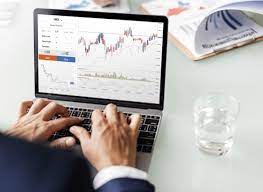Mastering Markets: The Role of Your Forex broker
Forex trading is an exciting venture that requires skill, persistence, and a great broker. The broker plays a crucial role in the forex industry- they provide traders with a platform to execute trades, facilitate deposits and withdrawals, offer educational resources, and much more. Finding a reputable forex broker that aligns with your preferences and trading style is necessary for a successful trading journey. In this blog post, we will discuss how to find your broker bliss and elevate your forex trading experience.
Identify your trading needs:
The first step to finding a broker that suits you is to establish your forex trading needs. Your trading needs may include access to multiple forex pairs, low spreads, fast execution, and social trading capabilities. Identify your trading style and whether you are a beginner or an experienced trader. A broker that caters to beginners might offer a demo account with a low initial deposit and an easy-to-use platform. In contrast, an experienced trader would prefer a broker with sophisticated analytical tools and high leverage options. Carefully analyzing your trading needs is vital in finding a broker that fits like a glove.
Broker Regulations, Licenses, and Reputation:
The forex market is not regulated in every country. Therefore, traders must choose a broker that is regulated by reputable regulatory authorities like the National Futures Association (NFA), Financial Conduct Authority (FCA), and Australian Securities and Investments Commission (ASIC). A regulated broker offers a level of security and assurance to traders, protecting their investment from fraud and other malpractices. Oddly enough, do not depend solely upon the regulation to judge the broker, research the broker’s reputation and reviews from existing customers to get an understanding of what customer experience you will have.
Broker Fees and Commissions:
Like every business, a forex broker generates revenue off traders, which can come in the form of fees, commissions or spreads. Forex brokers might charge fees for deposits and withdrawals, inactivity, and trading on their platform. The spreads, which is the difference between the bid and ask price, are essential to keep your eye on. When it comes to fees and commissions, try to compare with multiple brokers and brokers that you have shortlisted. As a broker with the lowest fee and commissions might not offer high-quality service.
Customer Support and Market Analysis Tools:
Aim for forex brokers that offer personalized customer support like 24/7 phone support, email support, and Live chats. The broker must have a wide variety of market analysis tools like economic calendars, trading news, and charting tools. Moreover, experienced traders will find additional value from an options to receive trading signals.
Demo accounts:
Demo trading is an excellent way to test your trading strategies, hone your skills and familiarize yourself with the broker’s platform. Most forex brokers offer demo accounts with virtual money, allowing you to experience real market conditions without risking your hard-earned money. Demo account is an excellent learning tool for both beginners and advanced traders, and a broker that offers a demo account should be added to your possible considerations.
In short:
Finding a forex broker that aligns with your forex trading needs and style is necessary for a successful forex trading journey. Always focus on factors such as regulation and reputable reputation, fees and commissions, customer support and analytical tools, and demo account availability. Research brokers well to know which broker resonates with your preferences and needs, because the right broker that is licensed under reputable regulatory authorities, offers personalized customer support, adequate analytical tools, and should be your broker bliss.

